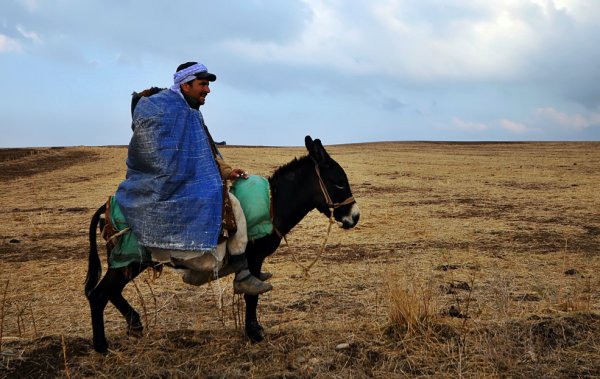Kurdish kolbars, carriers who transport goods across the border on their backs or horsebacks, see themselves forced to smuggle alcohol across the Iranian border during the holy month of Ramadan. Border closures and sanctions from the United States have ruptured economic activities in the borderland and result in markedly increased poverty. Religious themselves, kolbars find it difficult to square the smuggling of alcohol during Ramadan with their conscience, but they are left with few options. Forced into this sphere of illegality, they are tracked by the Islamic Revolutionary Guard Corps (IRGC).
Between the Kurdistan Region and Iranian Kurdistan, kolbars smuggle goods by foot.
They say poverty has forced them into this occupation.
"The reasons we are doing this is because we are poor under lots of economic pressure. We have children, but we don’t have money at home. When we earn some money from this bar, we will be in need of money," one kolbar told Rudaw.
Some carry boxes of alcohol on their backs for seven hours, netting just $6 for the trek to Iran.
Before heading off, the porters will sit in a mosque and pray.
"We know that Allah has forbidden this during Ramadan and also other months. But Allah is forgiveness and he will know better how to forgive us," said the kolbar.
Another, who also prefers to remain anonymous, says he has borrowed money for his wedding.
"I married a month ago. I am doing this work as I am fasting, because I do not have another option. I bring 4-5 horses and sometimes we stay for 5-6 days. I have not paid for the gold and other stuff I bought for my wife," he said.
The kolbars know they are hunted by Iran's IRGC units, who are charged with border security.
Closing some semi-official borders and international US sanctions has put more economic pressure on Iranian Kurds who live in the border areas.


